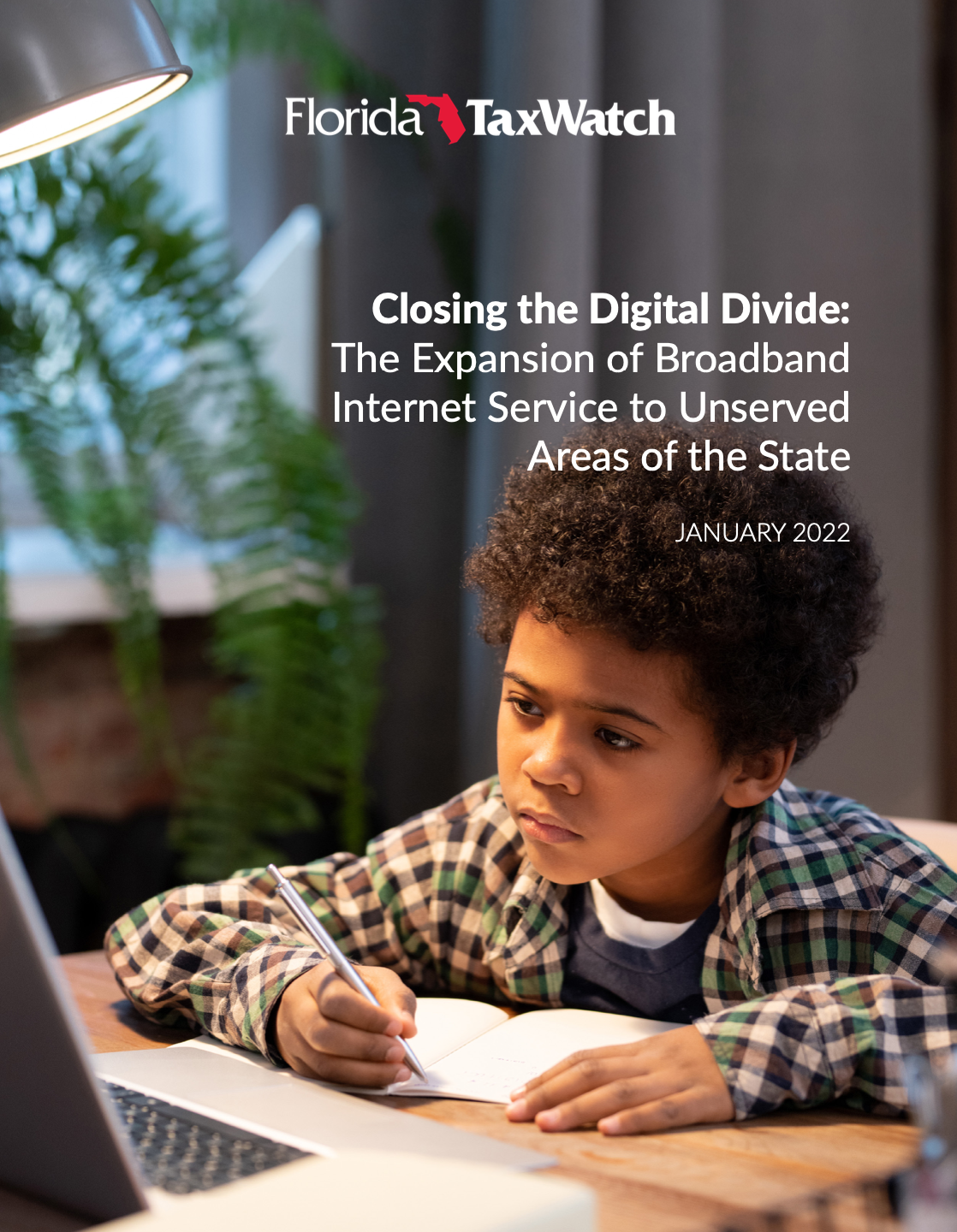Closing the Digital Divide-The Expansion of Broadband Internet Service to Unserved Areas of the State

The COVID-19 pandemic has demonstrated the importance of access to reliable and affordable high-quality broadband Internet service to our daily lives. Communities that currently lack access to the affordable, reliable, high-quality broadband Internet that is necessary for full participation in education, health care, employment, social services and government programs, and civic life are at a marked disadvantage without that access. To help ensure that all Florida communities have access to reliable and affordable high-quality broadband Internet service Florida TaxWatch recommends the following:
1. Priority for the expansion of broadband Internet service should be placed on unserved, as opposed to underserved, areas of the state. Once every unserved community has access to broadband Internet service, then the focus can shift to improving service in underserved areas of the state.
2. The legislature should place the $366 million from the Capital Projects Fund into the Broadband Opportunity Grant Program, to be administered by the DEO.
3. The legislature should place the minimum $100 million from the Infrastructure Investment and Jobs Act into a program to guide the replacement of utility poles to accommodate a broadband provider’s attachment if replacement is necessary to meet applicable safety and engineering requirements.
4. The legislature should appropriate $320,168 as requested by DEO in its FY 2022-23 Legislative Budget Request for: (1) one full-time equivalent (FTE) position and associated expenses to administer the Broadband Opportunity Grant Program and to work with local and state government agencies, community organizations and private businesses to increase the availability and effectiveness of broadband Internet throughout the state, specifically in small and rural communities; and (2) funds for contracted services to procure a vendor to update and expand the existing geographic information system (GIS) maps of broadband Internet service availability throughout the state.
5. The DEO and FRCA should ramp up efforts to engage and involve those counties that did not participate in the regional workshops.
6. The DEO should ramp up efforts to make available to the LTPTs additional expertise (e.g., Florida Association of Counties, Florida League of Cities, Florida Electric Cooperatives, existing Internet service providers, etc.) to assist in identifying appropriate strategies and technologies needed to increase the availability and accessibility of broadband Internet in each region of the state.
7. The public and private providers that came together at the October 27, 2021, meeting coordinated by Senator Ausley and Representative Clemons should continue to work together to ensure the provision of reliable and affordable high-quality broadband Internet service to every unserved area of the state. The DEO should work diligently to ensure that the deadlines for the submission of the strategic plan required by CS/HB 969 (2020), for the federal grant plan, and all reporting requirements are met.
8. The legislature should adopt a fair and equitable utility pole policy that ensures a reasonable cost allocation of pole costs and that limits a pole owner’s ability to hold up the deployment of broadband Internet service in unserved areas of the state.